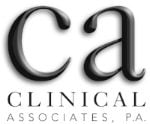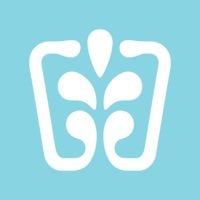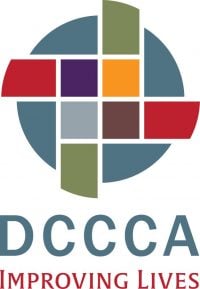Clinical Associates
Drug Rehab Center in Lenexa, Kansas
Clinical Associates in Lenexa, Kansas offers evidence-based mental health and addiction treatment services, including individual and group therapy, medication management, trauma work, and relapse prevention, all while providing a safe and supportive environment for their clients to achieve lasting recovery.
About Clinical Associates in Kansas
Clinical Associates in Lenexa, KS, specializes in substance abuse treatment and mental health counseling, offering a unique blend of outpatient services tailored for adults seeking recovery. Their approach includes a combination of individual and group therapy, intensive outpatient treatment, and family counseling, all designed to address the complexities of addiction alongside mental health issues like depression and anxiety.
- Outpatient substance abuse treatment and evaluation cater to adults over 18, ensuring a focused and mature environment for recovery.
- A comprehensive program that includes psychoeducational intervention alongside traditional therapy methods, providing a well-rounded approach to treatment.
- Certified addictions counselors lead one-on-one and group counseling, offering personalized care and support throughout the recovery journey.
Accredited by the Commission on Accreditation of Rehabilitation Programs and licensed by the Kansas Department of Mental Health and Substance Abuse Services, Clinical Associates stands out for its commitment to high standards and evidence-based therapies. The facility's dedication to creating customized treatment plans reflects its mission to support informed decisions and successful recovery paths.
The center addresses a wide range of addictions and related mental health issues, utilizing methods such as cognitive-behavioral therapy, medication management, and intensive family therapy. Treatment levels include outpatient individual and group sessions, intensive outpatient programs, and psychotherapy, focusing on achieving lasting recovery and improving overall well-being.
Genders
Ages
Modality
Additional
Accreditations
SAMHSA
Conditions and Issues Treated
Opioid addiction has become a significant health problem in the United States. When a person’s life becomes unmanageable because of an opioid addiction, treatment can help them get sober. Treatment includes medical care and counseling.
“With so many people struggling with opioid addiction, we need more care and attention for those who want to quit. Opioid addicts often take opioids when they experience a painful injury – that’s how the cycle starts! When someone begins taking their medication differently than prescribed or takes an excessive amount of drugs, it means they’re hooked on drugs and in danger of overdosing.
The most successful way to beat this is through detoxing from these types treatments at Clinical Associates in . Most facilities start by using medical support during the process while providing counseling services; rehabilitation comes later on after treatment has been completed successfully.
Levels of Care Offered
This center offers a variety of custom treatment tailored to individual recovery. Currently available are Aftercare Support, Drug Rehab, Intensive Outpatient, Outpatient, with additional therapies available as listed below.
Outpatient addiction treatment is beneficial for people who are able to function well in their day-to-day lives. It is recommended for people who are not yet ready to end their relationships with friends or family members who might be encouraging drug and alcohol use.
Intensive outpatient treatment is beneficial for:
- People who are able to attend treatment more than 3 times per week.
- People who do not meet the criteria for inpatient treatment.
- People who are able to contribute to their own recovery outside of the treatment center.
- People who are motivated towards recovery.
- People who are able to overcome addiction on their own without the need for higher levels of care.
Outpatient programs at Clinical Associates, the Lenexa resident can live with their family while continuing with their job or studies. Treatment includes educating the patient on drug abuse, medications, and counseling sessions at the individual or group level. Outpatient treatment plans cover diagnosis, detoxification, management, and counseling. They are a popular option for those who have graduated from inpatient facilities.
Without aftercare support, addicts can easily relapse back into addiction. It is crucial to integrate the addict back into society. Aftercare support should take place after outpatient treatment has ended.
There are a few different types of aftercare support that patients can seek after completing an inpatient treatment program:
- 12 Step Self-help groups (AA, NA)
- Therapeutic communities,
- Long-term, structured sober living arrangements
- Halfway houses (residential treatment centers)
Many different support groups exist for addicts to seek help after treatment. Some are more effective than others, depending on the person’s addiction, background, and other factors.
Therapies & Programs
Group therapy sessions are another common addiction recovery service. These group sessions typically involve six to 12 addicts who meet regularly with a trained professional for support and guidance.
During these sessions, the group shares their experiences with one another and provides feedback that can help each member avoid relapse or overcome specific obstacles they are facing in their recovery process. With this type of support and guidance, addicts can feel like they are part of a community that understands their struggles and will help them get through the hard times.
Many people struggling with drug addiction have experienced some form of trauma in their lives. It is crucial that these individuals seek out professional help; otherwise, their drug abuse and addiction will likely continue.
Therapists and counselors at drug treatment centers employ several treatment programs to help people struggling with drug addiction, including trauma therapy. Trauma therapy helps people dealing with addiction by allowing them to confront the traumas of their past and move past them.
It is important to note that trauma therapy should not be confused with PTSD (post-traumatic stress disorder). Rather, it is used to treat the effects of trauma, which are often at the root of addiction.
Dialectical Behavior Therapy was developed in the 1980s to treat chronically suicidal individuals. It is a cognitive-behavioral therapy that combines standard DBT with strategies derived from Zen Buddhism, such as mindfulness training.
DBT has been adapted for use with other types of psychiatric problems, including eating disorders, substance abuse disorders, borderline personality disorder, posttraumatic stress disorder (PTSD), and other personality disorders. Dialectical Behavior Therapy is considered a psychosocial treatment of BPD. This means that while it can be used alone or in conjunction with drug treatments, DBT does not rely on medications to treat the disorder. Instead, DBT aims to help patients change their thinking and behavior.
Cognitive Behavioral Therapy (CBT) focuses on the underlying thoughts and behaviors that caused the problem of addiction in the first place and may cause a relapse. Negative feelings are common in drug abuse disorders, but they can lead to co-occurring disorders if not recognized. CBT involves strategies that help to change the behavior pattern by restructuring negative thoughts into positive ones. It helps to remove these feelings, and it provides long-term benefits. Also, CBT promotes self-awareness and self-control. It can be administered as a monotherapy or as part of combination therapy.
CBT can improve the patient’s mood, reduce drug cravings and boost success rates on treatment plans. Regular practice can help individuals handle negative attitudes, thoughts, and feelings without turning to drugs or alcohol. The core belief of Cognitive Behavioral Therapy (CBT) is that one’s moods, behaviors, and actions are all connected. Individuals can improve their quality of life using CBT. It helps addicts understand the patterns of thought and feelings that cause them to use drugs or alcohol and develop a healthy response.
It’s not as simple as quitting drinking or using drugs and expecting the hard part to be over. Many addicts in recovery have discovered that they need to improve skills such as time management, organization, communication, socialization, and self-esteem. Learning certain life skills can help those who are struggling with addiction.
Payment Options Accepted
For specific insurance or payment methods please contact us.
Is your insurance accepted?
Ask an expert, call (888) 674-0062
Additional Details
Specifics, location, and helpful extra information.
Lenexa, Kansas 66214 Phone Number(913) 677-3553 Meta DetailsUpdated April 15, 2024
Staff Verified
Clinical Associates Patient Reviews
There are no reviews yet. Be the first one to write one.
Lenexa, Kansas Addiction Information
About 42% of adults in Kansas have tried an illicit drug at some point in their lives. 12.4% of the state population uses illegal drugs and 4.5% abuse alcohol in a given year. 15.16% of all deaths in Kansas between 2008 and 2017 were caused by either drugs or alcohol.
8.8 percent of Lenexa residents aged 12 or older reported using illicit drugs in the past month. The city has seen a surge in opioid-related deaths and a rise in other drug-related crimes. Prescription drugs are easily available and often abused. These issues also have a significant financial impact on the community. The treatment process can vary depending on the facility but typically consists of detox, counseling, and aftercare.
Treatment in Nearby Cities
- Iola, KS (81.6 mi.)
- Olathe, KS (8.6 mi.)
- Beloit, KS (185.0 mi.)
- Belleville, KS (166.9 mi.)
- McPherson, KS (164.9 mi.)
Centers near Clinical Associates
The facility name, logo and brand are the property and registered trademarks of Clinical Associates, and are being used for identification and informational purposes only. Use of these names, logos and brands shall not imply endorsement. RehabNow.org is not affiliated with or sponsored by Clinical Associates.










